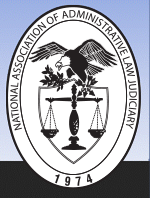Abstract
This article gives an overview of whistleblower protection adjudications at the U.S. Department of Labor's Office of Administrative Law Judges. Section I introduces the whistleblower protection statutes that give rise to the complaints adjudicated by the Secretary of Labor. Section II reviews earlier statutes that have protected employees from job retaliation and identifies several whistleblower statutes the Secretary of Labor does not administer, but refers to for guidance in interpreting and applying her employee protection programs; these statutes may permit judicial remedies. Section III familiarizes the reader with key concepts in whistleblower protection litigation. Among these are the need to prove intentional retaliation, and the distinction between direct and circumstantial proof of discrimination that affects whether the evidentiary presentation will rely on the McDonnell Douglas framework for burdens of proof and production to present a sufficient case. Section IV explores the types of relief that may be ordered to abate a violation, which includes reinstatement before a final decision under some statutes, and the monetary damages available to successful complainants. Section IV explores the remedies and monetary damages available to successful complainants. Section V highlights procedural matters that will interest lawyers representing workers claiming whistleblower protection or defending employers at the Office of Administrative Law Judges.
Recommended Citation
William Dorsey,
An Overview of Whistleblower Protection Claims at the United States Department of Labor,
26 J. Nat’l Ass’n Admin. L. Judiciary
Iss. 1
(2006)
Available at:
https://digitalcommons.pepperdine.edu/naalj/vol26/iss1/2

